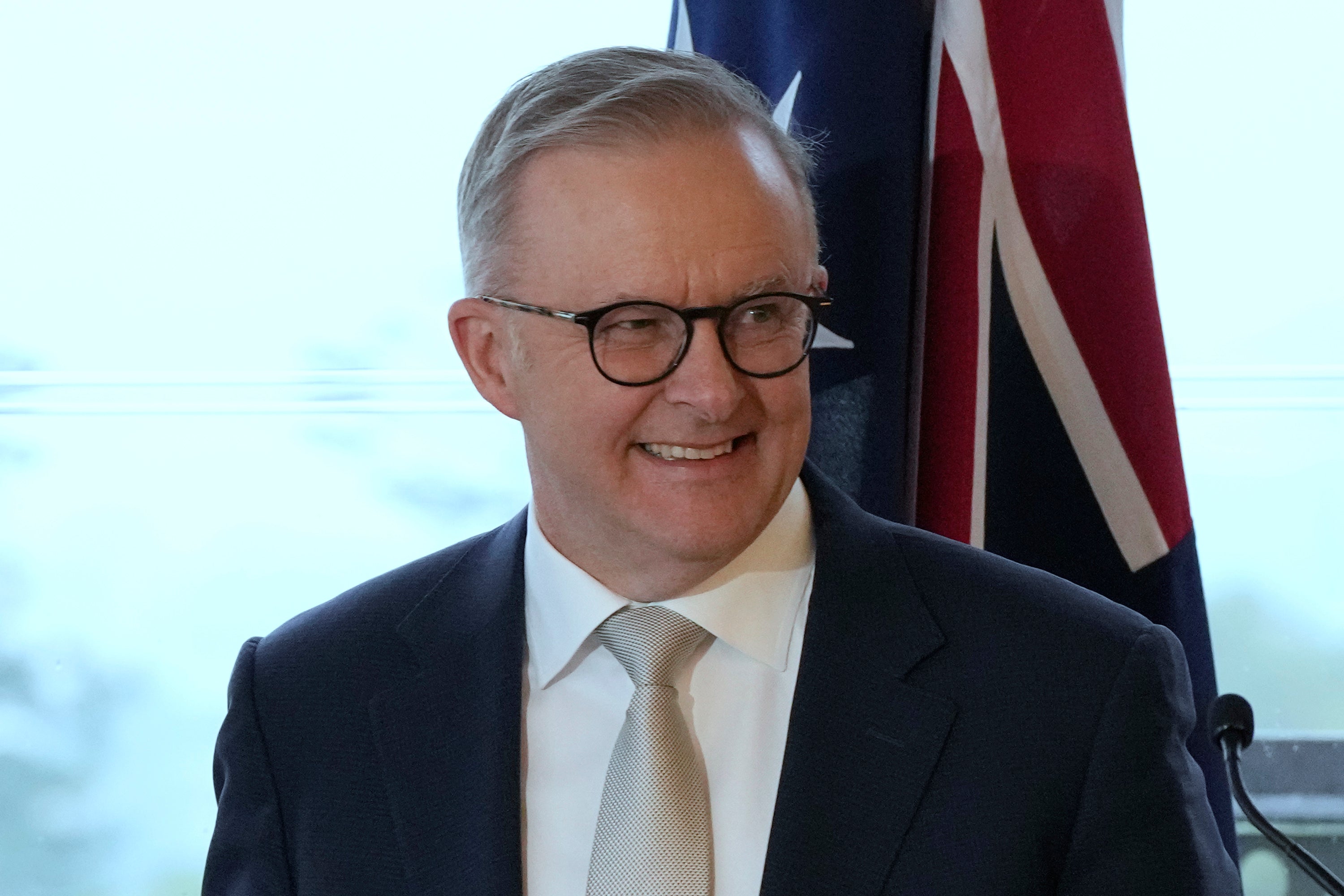Australian prime minister to raise imprisoned democracy blogger during China visit
Prime Minister Anthony Albanese says he will raise the plight of a detained Australian democracy blogger with Chinese leaders during his visit to China

Your support helps us to tell the story
From reproductive rights to climate change to Big Tech, The Independent is on the ground when the story is developing. Whether it's investigating the financials of Elon Musk's pro-Trump PAC or producing our latest documentary, 'The A Word', which shines a light on the American women fighting for reproductive rights, we know how important it is to parse out the facts from the messaging.
At such a critical moment in US history, we need reporters on the ground. Your donation allows us to keep sending journalists to speak to both sides of the story.
The Independent is trusted by Americans across the entire political spectrum. And unlike many other quality news outlets, we choose not to lock Americans out of our reporting and analysis with paywalls. We believe quality journalism should be available to everyone, paid for by those who can afford it.
Your support makes all the difference.Prime Minister Anthony Albanese said Wednesday he will raise the plight of a detained Australian democracy blogger with Chinese leaders during a state visit to China.
Albanese said he had approved a draft letter to the sons of Yang Hengjun, who has been detained in China since 2019.
“We’re very sympathetic and understand the concerns that they would have for their father and for this Australian who has been detained now for a long period of time,” Albanese told reporters.
The sons have made public a letter to Albanese, dated Oct. 28, that said there was a “narrow window of opportunity" before Albanese left for China to secure their father’s freedom.
“We ask that you make it clear that it is not possible to stabilize the bilateral relationship with a government that is holding an Australian citizen just a few kilometers south of where you will be hosted,” the brothers added, referring to Beijing.
They said they had just last week received the first letter Yang had been allowed to send from detention. Yang wrote: “I’m sick, I’m weak, I’m dying.”
Yang, who once worked for China’s Ministry of State Security, is still awaiting a verdict from his closed-door trial on espionage charges in May 2021.
His sons are 24 and 31 years old. Family friend Feng Chongyi said the sons had not been publicly identified because they feared Chinese retaliation for their father’s activities.
Feng said Albanese becoming the first Australian prime minister in seven years to visit China created an opportunity for Yang.
“It’s not the last chance, but it’s the best chance,” Feng said. “The visit symbolizes the complete normalization of relations between the two countries.”
Chinese Foreign Ministry spokesperson Wang Wenbin defended Yang's prosecution and his wait of over two years for a verdict.
“China is a country under the rule of law,” Wang said at a daily briefing.
“China’s judiciary authority handled the case in strict accordance with law, fully protected all legitimate rights of the person involved and fully respected and ensured the Australian side’s consular rights, including their rights to a consular visit,” he added.
Albanese’s visit that begins on Saturday is a sign that bilateral relations have improved since his center-left government was elected last year following nine years of conservative rule.
Albanese will meet with President Xi Jinping and Premier Li Qiang in Beijing and attend the China International Import Expo in Shanghai during the three-day visit.
Albanese raised the plights of Yang and another detained Australian, journalist Cheng Lei, in his first meeting with Xi on the sidelines of a Group of 20 summit in Indonesia a year ago.
Cheng was deported last month in what many saw as Beijing clearing the way for Albanese’s visit.
Yang’s sons wrote that said they had been “inspired by the wonderful news" of Cheng’s release. They hoped Australian authorities could “achieve a second miracle by saving our father.”
Asked about Cheng’s case, Albanese told reporters: “Every case is ... different.”